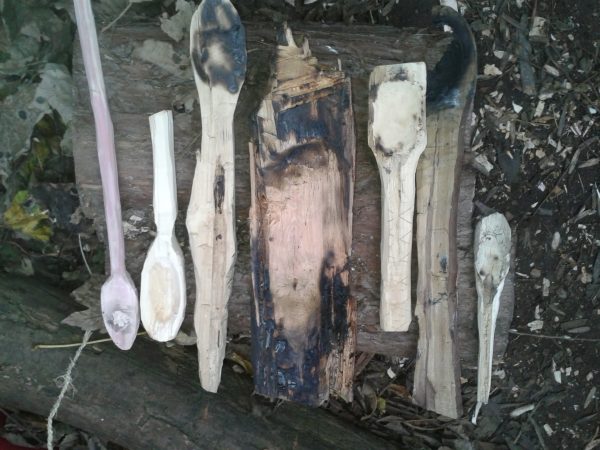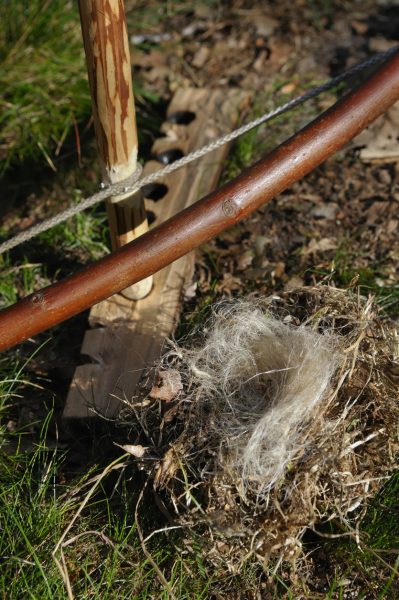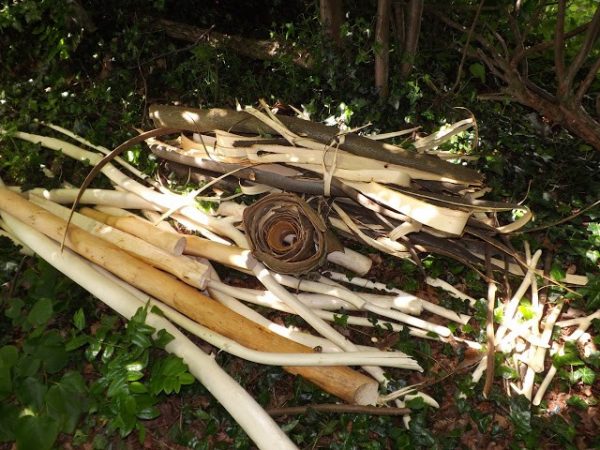Top 5 Bushcraft Skills You Need To Know
Bushcraft is basically the practice of living in the wilderness. Today, many such bushcraft skills would widely be considered old fashioned and outdated. It is not necessarily about carrying the lightest weight or the most technologically advanced kit on the market, but rather about using basic tools and equipment to make yourself comfortable in the outdoors. Make sense?
A skilful bushcrafter, for example, might carry a knife, cooking pot, firesteel and an axe that could weigh four or five kilos combined, whereas a lightweight camper will carry a tiny pocket knife, titanium cooking pot, and light weight camp stove for a total weight of less than two kilos.
The difference is the bushcrafter has the skill knowledge and equipment to then find all the food they need from the wild and cook it over a fire while the lightweight camper has to carry five kilos of boil in the bag meals.
Bushcraft skills made the exploration of the coppermine river by Samuel Hearne in 1770, and many other explorations and expeditions of the frontier period, possible as he realized the need to rely on native knowledge and wilderness living skill rather than modern equipment.
George Washington ‘Nessmuk’ Sears was another advocate of packing light and carrying simple tools and superior skill rather than modern conveniences when in the wilderness.
Which exact bushcraft skills are most important though? If I was to pick the five skills that you absolutely must know to start your journey to become a proficient bushcrafter it would be these:
1 – Navigation and Way Finding
However good you are at advanced bushcraft skills such as hand drill firelighting, flint napping or decorative carving, if you can’t find your way in the woods sand wilderness you really need to re-assess your priorities.
You absolutely must be able to find your way to safety, because in the event of emergencies you may need to summon help to your location and not being able to read a map or give a grid reference may cost you or a member of your party their life.
Navigation is a must have skill, and you can take it further than the basic skills of map and compass navigation. Celestial navigation using stars and sun and the navigational clues that can be gleaned from vegetation and a myriad of other skills are all an essential part of bushcraft.
Way finding is more than just navigation as well, simple travel from A to B is important but bushcraft focuses on the environment and your surrounding and way finding includes the search for and finding of resources, food, a source of water and suitable shelter.
More so than having the skills to hunt using primitive methods, identify edible plants and purify water, way finding includes the skills and knowledge required to locate those resources in the first place. Being able to look at a map or the landscape in front of you and work out where you are likely to find these vital resources.
2 – Tool Care
Many bushcrafters may get very excited about their knives, axes, saws and various specialist carving tools, but please keep in mind that these are not disposable tools and must be cared for and maintained.
They are an investment and may even save your life in an emergency so learning how to properly care for and service your tools is vital.

If you are buying a knife, you should also ensure you have set money aside to purchase a sharpening stone and you should practice sharpening and caring for your tools. You will need to ensure your tools are serviceable and sharp if you are going to get the best results from them.
3 – First Aid
As well as caring for your tools, you need to be able to care for yourself too. In the event of an accident in the wilderness or a careless slip with you axe or knife, you could find yourself in the position where you will need to be able to perform lifesaving first aid on members of your party and yourself in emergencies.
Hopefully you will never have to deal with anything more severe than cuts and scrapes, but having the kit to deal with those incidents is important in the first instance and knowing what to do is absolutely vital.
Carrying a tourniquet is also essential, especially if you or anyone else sustains an open wound with traumatic bleeding (in this case, a tourniquet will likely be the only thing that can save your life).
4 – Fire Lighting
As a bushcrafter you should master as many fire lighting techniques as possible, starting with simple skills such as lighting a fire consistently with a match and progressing onto using a modern ferrocerium firesteel, old fashioned flint and steel, and eventually fire by friction.
You should at least master the bow drill and learn how to make cordage from natural materials for use on your bow and then if time and your enthusiasm allows progress to more challenging methods such as the hand drill and fire plough.

Being able to light a fire is an absolutely vital skills, and while these five buschraft basics are not presented in any particular order, if they were fire would definitely come nearer the top. It will save your life in the cold, allow you to signal for rescue, cook your food, purify your water, and improve your morale. It is an absolutely essential aspect of bushcraft.
5 – Craft Skills
This is where bushcrafters will really see the benefits of focusing on skill over kit, with a bit of practice you ability to make things from wood and other natural materials will take away the need to carry so much kit.
With a basic tools you can make traps, replacement tool handles, poles for your shelter, netting needles, cord and rope, fish hooks from wood and bone. and almost anything else you can think of.

Simple tools such as the axe and knife are all that’s required, and even without them stone and bone tools and strategic use of hot coals and fire can produce marvelous results without the need for any modern equipment.
With these basic bushcraft skills, you will be equipped with everything you need to learn more wilderness living skills, prepared with basic skills for emergencies. As an added benefit, you will also astound your friends and family with how light you can pack on camping trips.





